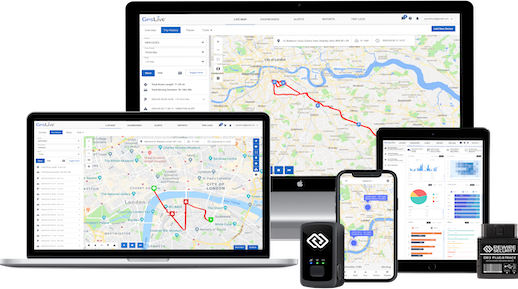How to Improve Fuel Efficiency in Fleet Business
How to Improve Fuel Efficiency in Fleet Business
Fuel consumption worldwide was hugely affected amidst the war-like situation between Ukraine and Russia. Due to the supply chain disruptions of crude oil, fuel prices shot up like never before. Fuel costs have reached record highs in the UK in 2022, with petrol reaching £1.67 per litre and diesel reaching £1.80 per litre in March .
This massively affected the commercial vehicle industry, adding to the complexity of challenges the fleet industry frequently faces. Not to forget, fuel costs make up to 60% of the operating expenses, and hence, fleet businesses have to ensure that they run fuel-efficient vehicles.
Though fleet owners cannot control fuel prices, they can control the way vehicles consume fuel across fleets. Fleet managers need to identify where they can use less fuel and save money. Indeed, tracking fuel consumption can be daunting as fleet managers have to take care of other tasks, such as routing, maintenance, customer service, etc. but using GPS tracking systems makes most of these tasks much more easier.
Fleet telematics systems can help them with accurate monitoring of fuel usage and provide detailed reports on the causes of fuel wastage. Fleet managers can revise their strategies and ensure less fuel wastage, run fuel-efficient vehicles, and improve profitability with such data. Here’s how fleet telematics can improve the fuel efficiency of fleets.
Monitor Driving Behaviour
Did you know aggressive driving can result in more fuel usage? Studies show that such driving can cause lower mile per gallon by 10-40% on busy routes and 15-30% on motorway routes. Further, excessive speeding leads to 20% more fuel consumption. Such extra expenses massively affect the bottom line of the business annually.
Besides excessive speeding, harsh braking, sharp turns, etc., affect the wear and tear of vehicles and reduce their lifespan. Vehicle idling is another significant contributor to fuel waste, consuming around 2 ltres of fuel per hour. Vehicle telematics systems provide real-time information on driving behaviour and vehicle idling. Fleet managers can understand the problem areas and take preventive steps accordingly. They can provide necessary feedback and guide their drivers to improve their driving skills. Having visibility into vehicles can help fleet managers ensure optimum utilisation of fuel and improve the performance of vehicles.
Preventive Maintenance
Ensuring properly maintained vehicles run on the road is the most critical responsibility of a fleet manager. This also impacts the vehicle’s fuel consumption. But if fleet managers don’t carry out regular fleet maintenance, it affects the overall functioning of the business. For example, if the tire pressure is 40% below the recommended level, vehicles consume 8% more fuel. Unexpected breakdowns take up more repair costs than usual and cause disruptions in operations.
Telematics systems send notifications and data on vehicle effectiveness and alert fleet managers of any performance issue. It also notifies them when the next repair is due and sets a preventive maintenance schedule. This way, your vehicles are repaired before they need replacement.
Proper maintenance improves the longevity of the vehicles and increases productivity. When vehicles are in good health, so are your expenses and overall business.
Route Optimisation
Route planning is a critical aspect in the logistics and transportation industry as it impacts customer service and experience. Anybody would prefer to take the shortest route possible to reach a destination. Similarly, fleet managers must determine the fastest and most efficient route for effective fleet operations. Telematics systems with GPS technology help them determine optimised routes that need less fuel-consuming stops and idle time.
Further, GPS technology also alerts drivers of road obstruction, traffic congestion, weather conditions, etc., and suggests the best alternative route to ensure customer delivery on time. Thanks to real-time GPS tracking, you can also dispatch the nearest driver available for the job and improve customer service.
Prevent Fuel Theft
Along with rising fuel prices, fuel thefts are also increasing. Moreover, it is challenging for fleet managers to know if all fuel transactions are from their vehicles. Drivers can empty fuel tanks and sell the fuel at a much higher price. However, with the help of a fleet telematics system, they have access to data on each vehicle’s fuel usage per trip. Real-time GPS tracking provides the vehicle’s and the fuel pump’s location where drivers filled the vehicle. If the vehicle’s location does not match GPS coordinates at the time of the fuel transaction, you know something is wrong.
Such visibility can help fleet managers catch hold of suspicious activities that would otherwise go unnoticed. It also notifies fleet managers if drivers take any unauthorised routes or trips. This way, you can get rid of any inefficiencies and improve productivity.
Conclusion
Data-driven decision-making can help fleet managers to achieve fuel economy goals and objectives. Vehicle telematics solutions reduce the cost of operations, ensure fuel-efficient fleets, and maintain a positive ROI.









